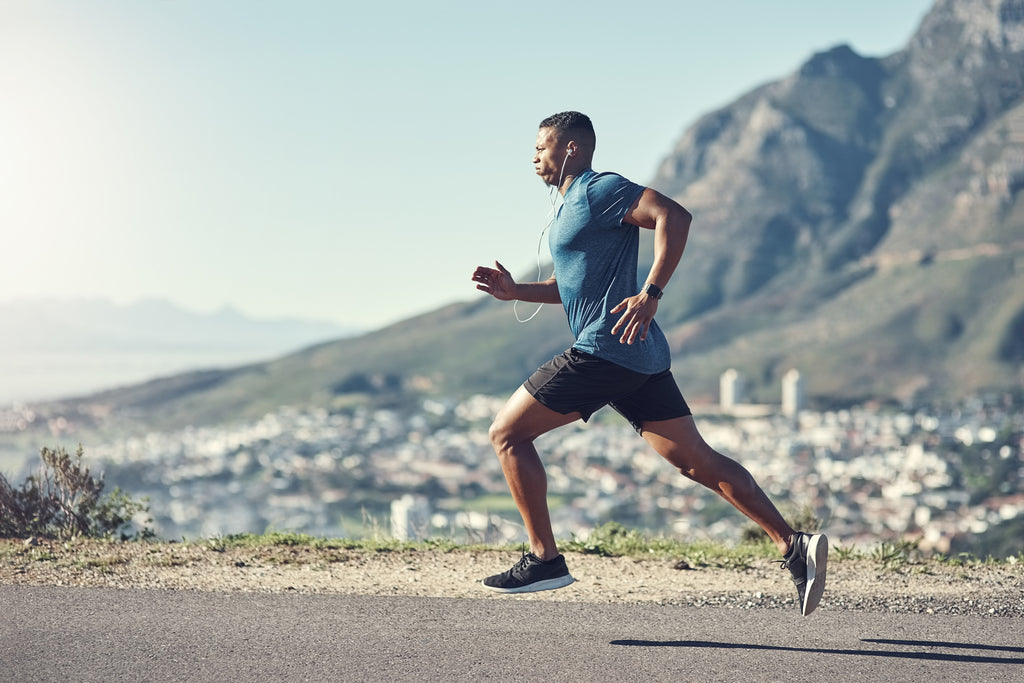
Exercise is one of the best possible ways to send yourself into a deep refreshing sleep. A body that has worked hard can benefit from a nightly recharge excellently. People who add exercise into their routine often find they sleep more deeply and more satisfactorily than when they do not exercise. Merely getting your blood pumping and tiring out your muscles is enough to help your body and mind make the most of your sleep. But you may also have noticed that working out at different times of day has a different effect on your sleep quality or pattern of sleep.
There is a widespread debate about when the best time to work out is to get a good night's sleep. Getting your blood pumping right before bed, for example, can make it harder to get to sleep unless you wind down the correct way. And many people feel that exercise in the morning has less of an impact on rest than exercise later in the day.
We're here to sort this out by sharing how and when to exercise to sleep better all night every night.
Everyone Exercises Differently
The first thing we need to cover here is that everyone exercises in their own ways, and at different times of the day. Not only do our bodies handle exercise, metabolism, and sleep differently, but we also have very different personal schedules when we can fit exercise into our routines. So while optimizing your exercise and sleep plans, remember there's no one right answer. There's the answer that works best for you, considering both your exercise capabilities and your schedule.
Morning Exercise: Greet the Sun a Your Own Pace
For many, getting your blood pumping in the morning is the perfect way to wake up and prepare for the day. Some get moving immediately; some put themselves together, then head out to the gym. Some greet the sun with yoga or peaceful tai-chi. Some go on a hard run or weights set to get into that cardio-zone before work. Believe it or not, all of these approaches have a similar impact.
Any exercise in the morning serves to get your blood moving first thing and supplying your brain and muscles with the energy you need to rock the rest of the day. You are also gearing your body up to prioritize calories healthily. Your breakfast and lunch, if lean and proteinous, will be sent to make your muscles stronger and give you more physical energy to spend. And if you need and spend that energy during the day, you will be ready for a rewarding rest at the end of the day.
Exercising in the morning also allows you to dedicate your evening to wind down if you need time to decompress.
Afternoon Exercise: Active Time of Day
Exercise is easiest to do in the afternoon when the day and your muscles are at their warmest. The body is very responsive to temperature when it comes to muscle performance. Which is great, because many professionals dedicate their lunchtimes to a quick run around the block, a trip to the gym, or the occasional impromptu field game.
If you are an afternoon exerciser or think you might become one, this is a great time to work out to improve your sleep quality. Your body expects to get exhausted during the day and fall into bed about an hour after the sun sets—the same way our farm-working ancestors would. Afternoon exercise burns calories tell your body to spend lunch and dinner nutrients on muscle and set you up to be healthily tired by bedtime.
Evening Exercise: Hours Before Sleep
And then there are the droves of professionals who find their time to exercise after work. Before or after dinner, depending on your schedule and metabolism. Evening exercise is standard because it's the easiest to fit into a typical 9-5 schedule with only half-hour lunch breaks and no in-building gym. So, if you work out in the early to mid-evening, know that your body will be ready for deep sleep.
Sleep works best when you get tired, heat up, cool down, then snuggle up under the covers. Evening workouts are great for this because you have time to cool down after exercise, but you're still drowsy by the time bedtime rolls around. If you work out early in the evening, consider scheduling dinner half an hour after your post-workout shower. Then let your evening roll comfortably toward the bed.
If you work out late in the evening, schedule dinner at least an hour beforehand or hold off until after; it will help you make sure your meal builds muscle. Then spend your evening cooling down and relaxing for bed.
Nighttime Exercise: Wind Down for Bed
Finally, there are those few who enjoy exercising almost right before bed. Late night exercise can be beneficial to help you spend the last of the day's physical energy. But you also don't want to overheat your body right before trying to sleep. We sleep best when our core temperatures drop.
So, for before-bed exercises, favor slow, and gentle, relaxing workouts like yoga, tai-chi, walking, or ballet stretches. You can get a pretty good and exhausting workout without overheating by flexing your muscles tight as you move more slowly. It will also promote toning rather than muscle bulk.
Once you finish your nighttime workout, turn down the AC, and take a hot shower. The temperature change as you step out of the hot shower into the cold house is what you need to send yourself into a deep and pleasant sleep. Dive under the covers and let your thoughts drift peacefully into dreamland.
Here at Nest Bedding, we believe in a variety of techniques that help people get the deep and dreamy sleep they need—whether that involves white noise, meditation, exercise to sleep better, or something as simple as a new mattress. For more great sleep tips, keep reading the blog, or contact us today!




